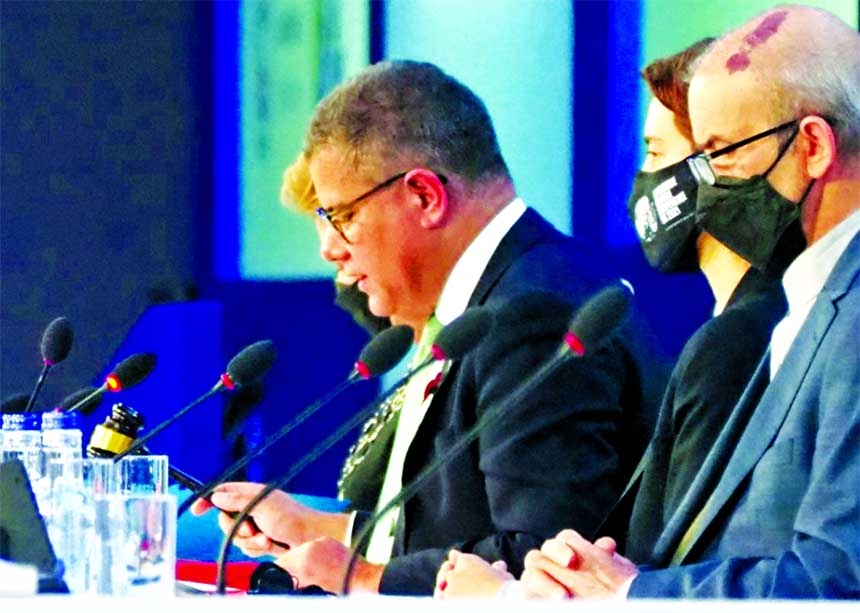
The Glasgow climate deal is a “game-changing agreement” which sounds “the death knell for coal power”, Boris Johnson says.
Although countries only agreed to “phase down” rather than “phase out” coal, the prime minister said this was a fantastic achievement.
The change was made after a late intervention by China and India.
But it remains the first time plans to reduce coal have been mentioned in such a climate deal.
The agreement was reached after the Glasgow COP26 summit went into overtime on Saturday.
Mr Johnson said that despite the achievements of the summit, his reaction was “tinged with disappointment”.
UNB adds: U.N. climate talks closed Saturday with an agreement on efforts to limit global temperature rise to 1.5 C above pre-industrial levels after a last-minute compromise on coal power.
Participants from nearly 200 countries also agreed that accelerated action is necessary this decade to address global greenhouse gas emissions, as they wrapped up the nearly two-week conference in Glasgow, which was extended by one day.
The agreement at the climate talks, known as COP26, was reached after India and other coal-reliant countries raised objections in last-minute negotiations, which watered down language to a commitment to the “phase-down” of coal power instead of “phase-out.”
Alok Sharma, the president of COP26, said that confining temperature increase to 1.5 C above preindustrial levels is “a historic agreement” as it had been a major goal when Britain took on the role of the presidency-designate two years ago.
Still, “what this will be judged on is not just the fact that countries have signed up, but it will be judged on whether they meet and deliver on the commitments,” he said.
Japanese Environment Minister Tsuyoshi Yamaguchi, who attended the talks, said his country will maintain its policy of using coal power, though it will continue to promote the development of technology to reduce carbon emissions and “prioritize renewable energy as the main power source.”
Japan has become more reliant on coal power after suspending nuclear power plants following the Fukushima nuclear disaster in 2011. It plans to generate 20 percent of total nationwide power through coal in fiscal 2030, in contrast to European countries’ shift away from coal power.

